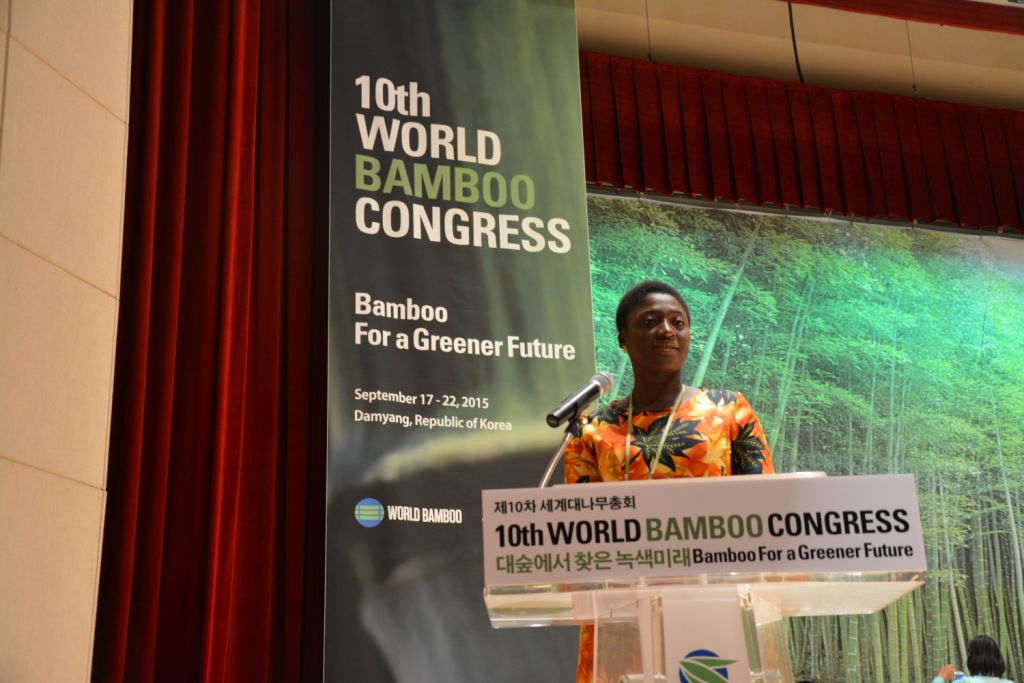
By Olumide Idowu
“We’ll not take Nigerians for granted”, these words were uttered by Nigerian President Muhammadu Buhari, shortly after he was elected as the President of Nigeria, and during his inauguration on the 29th of May 2015, he restated his government’s interest in addressing Climate Change and Sustainable Development issues.
“I also wish to assure the wider international community of our readiness to cooperate and help to combat threats of cross-border terrorism, sea piracy, refugees and financial crime, cyber crime, climate change, the spread of communicable diseases and other challenges of the 21st century,” Buhari said.
At the 21st Session of the Conference of the Parties (COP 21) to the United Nations Framework Convention on Climate Change (UNFCCC) slated for December 2015, climate negotiators from all over the world will converge on Paris, where they will deliberate on concrete CO2 emissions reduction plans to be incorporated with total renewable energy road maps geared towards limiting and regulating human activities that could alter the earth.
Nigerian government needs to remember that if we are planning to limit the average global temperature of 2 degrees Celsius, we need to put a lot of effort into it. Should we be attending this UN Climate Change Conference in Paris from 30 November -11 December 2015? What shall we be going there to tell the world?
That we are distributing generators as a way of reducing emissions as a government? Or are we just going to attend and collect estacode to line our pockets? Nigeria needs to work on these few questions in order to participate in the Paris talks with something tangible to show.
As giant of Africa, we are still depending on these old glory days and we are not ashamed that some other countries like Democratic Republic of Congo (DRC), Kenya, Morocco, Benin, Ethiopia, and Gabon have submitted their pledges to the United Nations on how they intend to reduce greenhouse gas emissions emanating from their respective countries.
Climate Change and the associated obligation to reduce Green House Gas emissions have become one of the most important issues in the globe and its s worth achieving if we want to embrace a sustainable future, and to leave a country that will provide a safer and healthier future for our children.
When will Nigeria government submit its Intended Nationally Determined Contributions? When do we start talking about the policies governing them? The country is expected to deliver its commitment to a proposed UN climate change deal before the initial April 2015 deadline before it was shifted to 30th September 2015.
The United Nations Development Programme (UNDP) has also restated its readiness to support Nigeria in implementing its INDC as UNDP Country Director Dr. Lamin Beyai stated in his remarks at a stakeholders’ workshop on Climate Change recently: “Our support is to strengthen national capacities for integrating environmental and energy concerns into development plans at all levels. We know very well that National Green House Gas inventories are a critical starting place for preparing the INDC. It is noteworthy that the entire process would benefit immensely from national capacities developed with UNDP’s support during the preparation of the First and Second National Communications to UNFCCC. Coincidentally this would set the tone for the preparation of the Third National Communications.”
With all this international support we still find it difficult to put ourselves together and submit our pledge. On the UNFCCC portal, INDC NIGERIA link is empty and this is not right for a country like ours that is regarded as the biggest economy in Africa. I have always wondered what the Climate Change policy is for Nigeria.
The actions of the government portray a high level of insincerity among policy makers and it might be possible they don’t know how to face these issues. Even so we need to consider the level of corruption in our country which could lead to actions we know have negative effects on the populace as a whole, but pursuing them in spite of everything. Climate Change affects all aspects of our lives, as it has impacts on health, food, and housing even on economic security.
Citing Barack Obama, “this is the moment when we must come together to save our country Nigeria. Let us resolve that we will not leave our children a world where ocean rise and famine spreads and terrible storms devastate our lands.”
As a country that experiences flooding every time we have rainfall, I do not know where my family house will be in the next 30 years. Government should compile all necessary reports and submit the INDC before the deadline so that we can save our planet.
WE HAVE TO ACT NOW.










